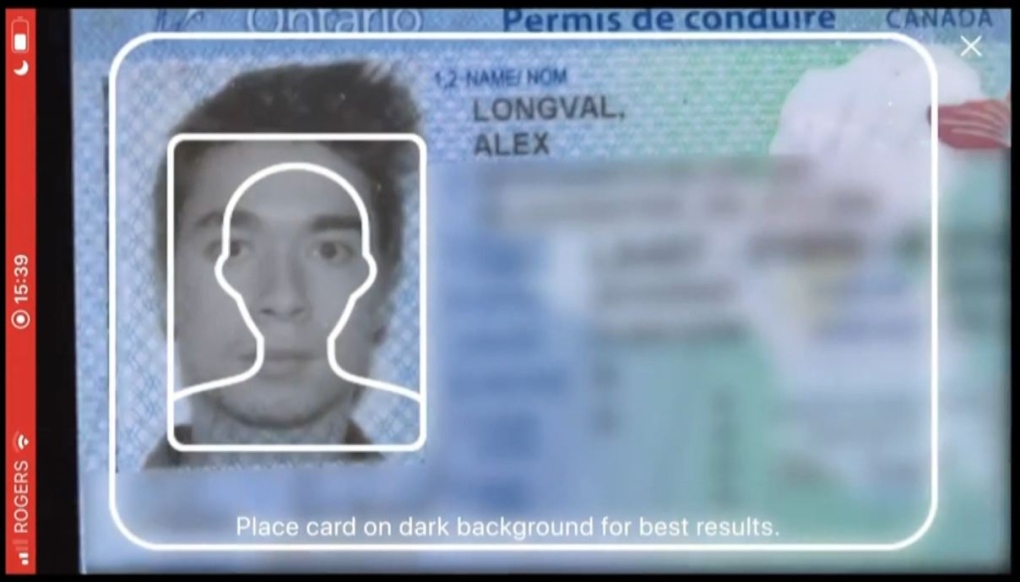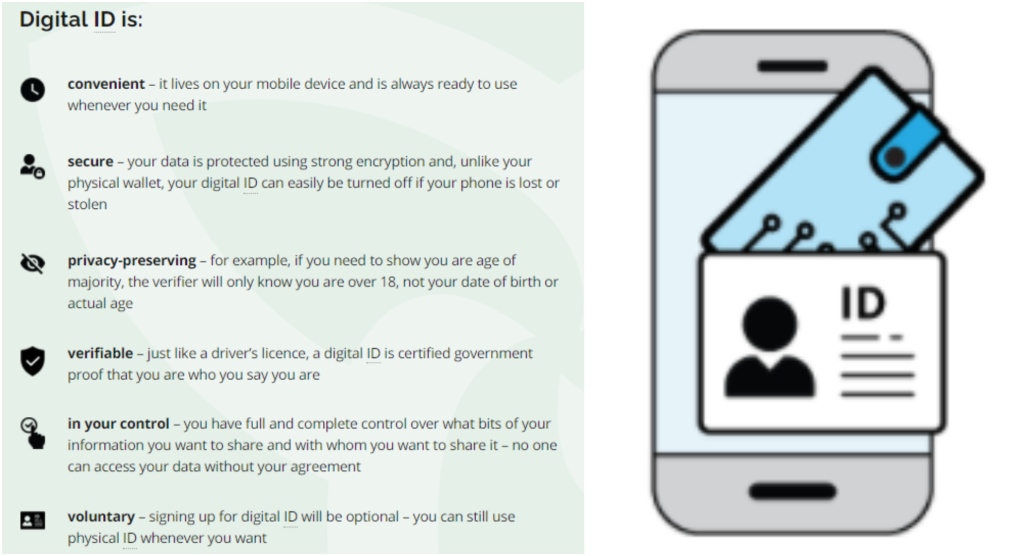Ontario has not released an update on its digital ID program in over a year

There have been no updates on Ontario’s digital ID program since November 2021, including whether or not the government intends on continuing to pursue the program.
CTV News Toronto has repeatedly asked the Ministry of Public and Business Service Delivery for an update on the app, which will allow Ontarians to have an electronic version of their government ID stored securely on their phone.
The program was supposed to launch in late 2021, but in November of that year, the province said it had been delayed due to the development of Ontario’s proof-of-vaccination app.
At the time, a spokesperson for the Associate Ministry of Digital Government said their priorities had to shift to support the pandemic response.
"We want to get the digital ID program right and ensure that privacy and security continue to be a top priority,” they said, adding the program would instead launch in 2022.
However, as the year comes to an end, the government remains tight-lipped as to the future of the program.
In April, CTV News Toronto asked the government about the timeline and no information was provided. The reference to the year 2022 was also removed from the digital ID website.
When asked again in mid-December whether there was a new timeline associated with the program or if the government had any further updates, a spokesperson said that “at this time, the ministry has no updates.”
The government would also not confirm whether or not the app was still in development.
The website for the program remains active as of Friday. On it, the government lists its “progress so far” since the idea was first announced in October 2020, which includes multiple consultations and a presentation to private-sector partners.
The program, the website says, will allow people and businesses to prove who they are both in-person and online without using their physical cards. Examples of when the digital ID can be used include when making age-sensitive purchases, applying for government assistance or benefits, visiting a doctor or opening a bank account. The government also said it could be used by businesses to apply for loans and tax credits, verify customers’ identity and hire new employees.
“Digital ID is the foundation that will enable easier access to online services and make Ontario one of the world’s most digitally advanced jurisdictions, with a value for Ontarians, businesses and the government that is estimated at $20 billion,” the website reads. “Digital ID is a convenient and easy identification solution that’s made with the security and encryption we need to securely perform transactions and access services online.”
The webpage was last updated on Nov. 18, 2021.

Technology and privacy experts say it makes sense the government is taking its time with the program, considering the sensitive nature of the content being stored.
Ann Cavoukian, executive director of the Global Privacy and Security By Design Center and former Privacy Commissioner of Ontario, said she has significant concerns about the government being responsible for securing such compromising data, and questioned whether the program was necessary.
“You think governments are in a great position to protect our data? It's a joke. They would need to encrypt this data in the strongest way from end to end. It’s not going to happen in my view,” she told CTV News Toronto.
In order to implement the program, Cavoukian said the government would need to have multiple consultations with experts in the field, as well as hire the best hackers to try and break any encryptions they use.
“We have to look under the hood on this one. We just can't take their word the government intends to secure the data.”
Back in November 2021, around the same time the PC government announced a delay on the digital ID program, the province experienced a security breach related to its vaccine portal. Some individuals who scheduled appointments or accessed their vaccine certificates using the provincial COVID-19 immunization system began reporting spam text messages of a financial nature.
The messages included the full name of the individuals who used the portal.
The government said this month about 360,000 people were impacted by the security breach.
“In over 95 per cent of cases, only names and/or phone numbers were impacted,” the ministry said.
Two people, including a government employee, were charged in connection with the incident.
In light of this, Cavoukian says the government needs to take added precautions. Considering the length of time this program will be active, it will also be necessary to upgrade security measures on a regular basis, she said.
Andrew Clement, a professor of information at the University of Toronto, agrees and says the idea of a digital ID program is “deceptively simple,” yet quite complex to implement.
“Essential to pulling off such ID schemes is thorough and genuine public consultations that provide an opportunity for all implicated parties to air their ambitions and concerns and for the public to have an effective say in the outcome,” he said in a statement to CTV News Toronto.
According to Clement, province-wide digital ID programs have an extensive track record of long implementation delays, as multiple technological issues, funding and civil liberty concerns play a part.
He added that he suspects those necessary consultations have not yet happened, which “implies that the key discussions are going on behind the scene and are messy.”
A similar program in Saskatchewan was put on hold in April 2022 due to privacy concerns.
CTVNews.ca Top Stories

Donald Trump says Canada becoming 51st U.S. state 'a great idea'
U.S. President-elect Donald Trump is taking aim at Canada once more, saying it would be 'a great idea' to make it America's ‘51st state.'
'You're either with Beijing or you're with Washington': Ford says to Mexico in CNN interview
Ontario Premier Doug Ford has a message for Mexico as the threat of tariffs by incoming president Donald Trump hangs over both sides of the U.S. border.
There are 88 new Order of Canada appointees. Here's a look at some of the most notable names
Ryan Reynolds, Scott Oake and Maureen Ann Jennings are among the 88 new recipients of the Order of Canada.
After scamming their victims, some con artists go on to scam our courts with impunity
Convicts, including fraudsters, are skipping out on their court-ordered payments to their victims to the tune of tens of millions of dollars across the country, according to figures obtained by CTV W5.
Synagogue on Montreal's West Island targeted by alleged arson
A synagogue on Montreal's West Island was the target of an alleged arson attack.
Iconic Halifax ship Theodore Too partially sunk at Ontario dock
An iconic ship that was a fixture in Halifax Harbour for 21 years has partially sunk in Ontario.
Canadians return to Canada Post with relief -- and shakier faith in the service
Canada Post trucks, conveyors and mail carriers swung back into motion Tuesday after a month-long strike by more than 55,000 postal workers left letters and parcels in limbo and a massive backlog to sort through.
NEW These seniors were hit by the affordability crisis in a different way. They're having to support their children and grandchildren
With the high cost of living increasingly a concern, some seniors are making sacrifices to help their adult children and grandchildren make ends meet. Here are some of their stories.
Restaurants that charge tax during holiday break could get investigated by CRA: industry expert
Restaurants that fail to honour the holiday tax break could be investigated by the Canada Revenue Tax Agency, according to the Ontario Restaurant Hotel and Motel Association.

































